‘This Is a Terrible Time For Our Country’: Trump Fumes as Judge Sets March 25 Date for Stormy Daniels Hush Money Trial
‘The fact that President Trump is now going to spend the next two months working on this trial instead of campaigning is something that shouldn’t happen in this country,’ the lead defense attorney, Todd Blanche, said.

The first-ever criminal trial of a former American president is now scheduled to happen in five weeks at New York City.
That’s how long President Trump may have to prepare after the presiding judge, Juan Manuel Merchan, a New York state supreme court justice, denied his request to dismiss the charges brought against him by the Manhattan district attorney, Alvin Bragg.
“At this point I can inform you that we’re moving ahead with jury selection on March 25,” Judge Merchan said on Thursday. Based on estimates by both the prosecutor and defense, the trial is expected to last about six weeks, he added.
“This is a terrible time for our country,” Mr. Trump said as he arrived for the morning hearing at the Manhattan criminal courthouse. “This is a real dark period.”
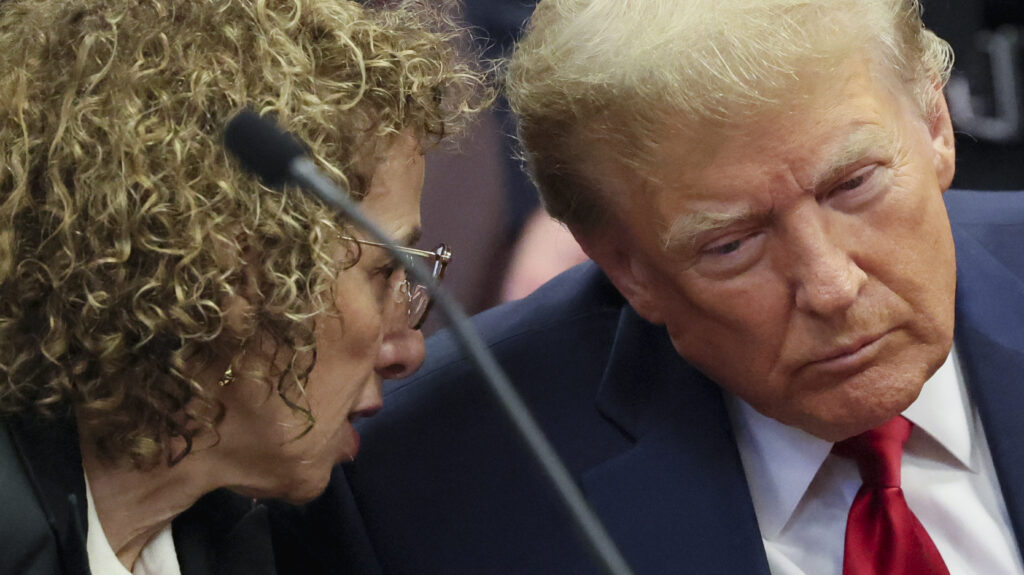
Mr. Bragg charged the former president with 34 counts of falsification of New York business records in an attempt to cover up hush-money payments to the porn star Stormy Daniels, who claims she had an extramarital affair with Mr. Trump. He denies it.
By themselves, these allegations would only amount to misdemeanor charges, but Mr. Bragg is pursuing a novel legal strategy as he seeks a felony conviction.
Mr. Bragg further accuses Mr. Trump of trying to hide “damaging information and unlawful activity from American voters before and after the 2016 election.” The intent to commit or conceal another crime, including breaking “state and federal election laws,” raises the charge to a felony, punishable by up to four years in prison, under New York law.
Mr. Trump has pleaded not guilty to all charges.
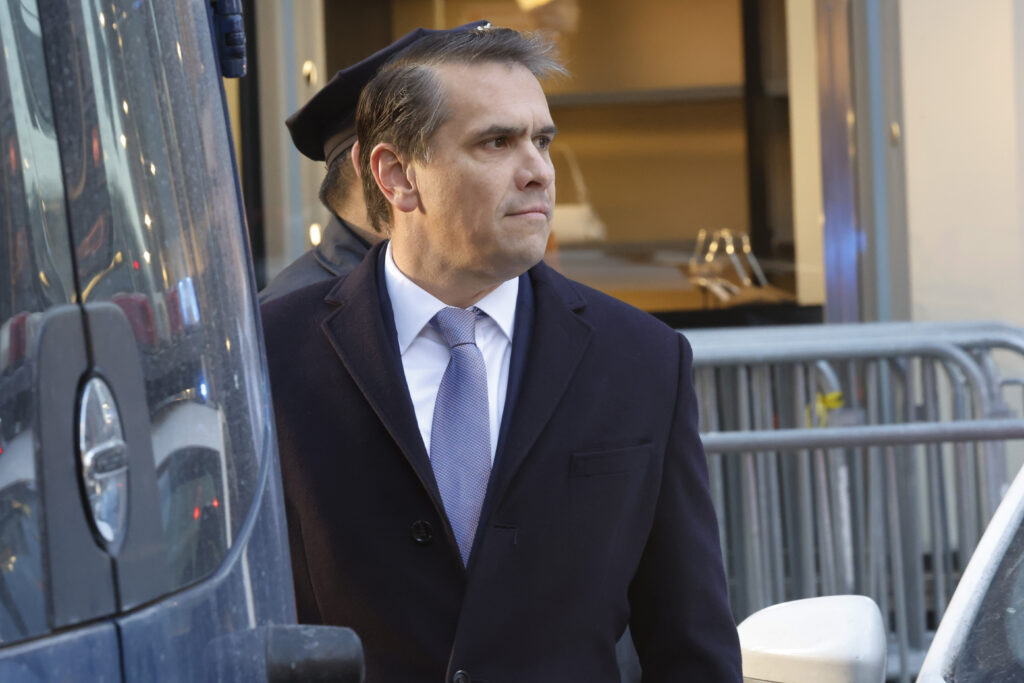
Flanked by Secret Service agents, Mr. Trump entered the courtroom at 9:30 a.m. As he passed through the spectator gallery on his way to the defense table at the front of the courtroom, he fist-bumped a former CNN legal analyst, lawyer, and author, Jeffrey Toobin, in a friendly gesture. The former president then briefly glanced at the other reporters before he took his seat next to his defense attorneys.
His lead attorney, Todd Blanche, who had expected to discuss the trial date at this hearing, called the judge’s decision a “great injustice.” Mr. Trump and his legal team are overwhelmed by an abnormal amount of legal challenges and deadlines, he lamented. Mr. Trump is facing three other criminal cases, in Georgia, Washington, D.C., and Florida — all three of which involve far more serious charges than those in the Stormy Daniels case — not to mention his upcoming appeals for the New York civil fraud and defamation cases.
He has already been ordered to pay more than $83 million to the writer E. Jean Carroll for defaming her, and any day now a judge is expected to award damages in the civil fraud suit. New York’s attorney general has asked for more than $375 million.
“We have been faced with compressed and expedited schedules in every one of those trials,” Mr. Blanche argued. “We, meaning myself, my firm and President Trump, have been put into an impossible position.”
Mr. Blanche is also the lead attorney in one of the criminal cases, in which Mr. Trump is charged in Florida with mishandling classified documents.
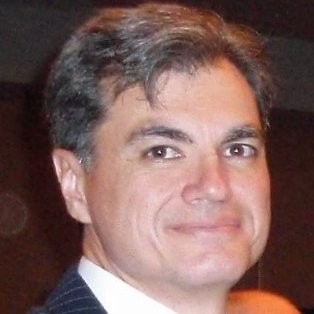
“You don’t have a trial date for Georgia, you don’t have a trial for D.C,” Justice Merchan responded. Mr. Blanche, he added, “made the choice to take on the second case.” He assured the defense that Mr. Trump was “not going to be in more than one criminal trial at once.”
Justice Merchan revealed previously undisclosed information that he had personally spoken to U.S. District Judge Tanya Chutkan, who is presiding over the federal prosecution against Mr. Trump at Washington, D.C., on criminal charges that he tried to overturn the election. That trial was originally scheduled for March 4, but Judge Chutkan put it on hold while Mr. Trump awaits an immunity claim decision from the Supreme Court.
Mr. Blanche kept pressing the issue. “In all of those cases,” he insisted, “there are millions of pages of discovery to go through.” He empathized that Mr. Trump, who is also campaigning for the presidency, “has a constitutional right to prepare for trial.”
“We want delays, obviously, I’m running for election,” Mr. Trump had told reporters outside the courtroom on Thursday morning. The prosecution by Mr. Bragg, he said, was blatant “election interference.” Rhetorically, he asked, “How can you run for election when you’re sitting in a courthouse in Manhattan all day long? I’m supposed to be in South Carolina right now.”
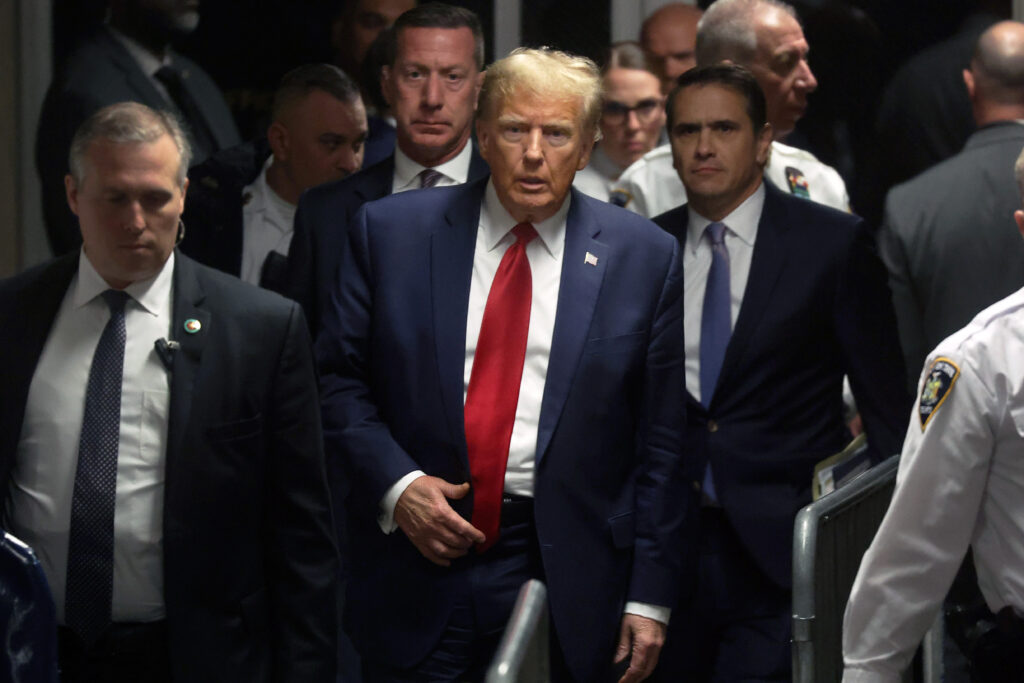
In its motion to dismiss the case, the defense had argued that Mr. Bragg “filed a discombobulated package of politically motivated charges marred by legal defects, procedural failures, discovery violations, and a stubborn refusal to provide meaningful particulars regarding its theory of the case.”
The defense recalled that Mr. Bragg’s predecessor, the former Manhattan district attorney, Cyrus Vance Jr., had decided not to pursue the charges, and called the indictment the zombie case, “because of how many times they abandoned the theory, only to revive it when other inquiries were even less fruitful.”
In a 30-page ruling, published on Thursday morning, Justice Merchan explained his decision to not dismiss the charges. He did not want to engage in any further arguments regarding the matter at the hearing.
The discussion then moved on to the questions Justice Merchan should use when selecting 18 jurors to decide the case at trial. Mr. Trump wanted one question to ask jurors which, if any, political party they were affiliated with.
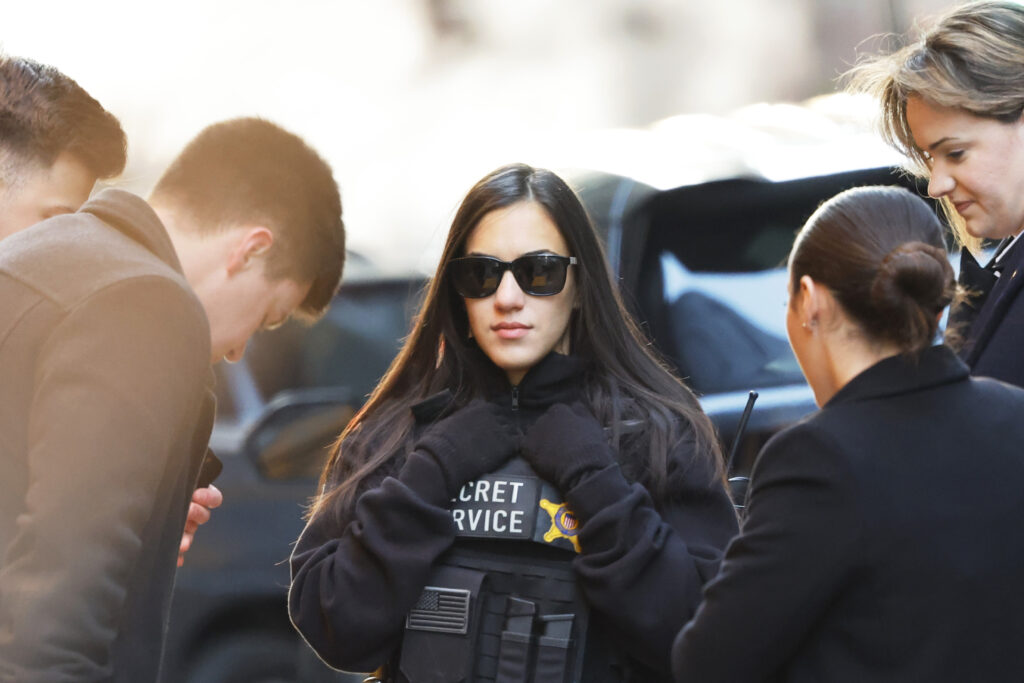
“We can’t ignore the elephant in the room. President Trump is running and he is a Republican, and he was the Republican president of the United States for four years, and the district attorney is a Democrat,” Mr. Blanche told the court.
But prosecutor Joshua Steinglass said it was not appropriate to ask about political affiliation.
“We are not interested in whether people like or dislike President Trump, we are interested in whether they can be fair or unfair.”
A series of potential juror questions were discussed, including what news outlets people watched, and whether they belonged to any fringe groups, like Antifa or the Proud Boys.
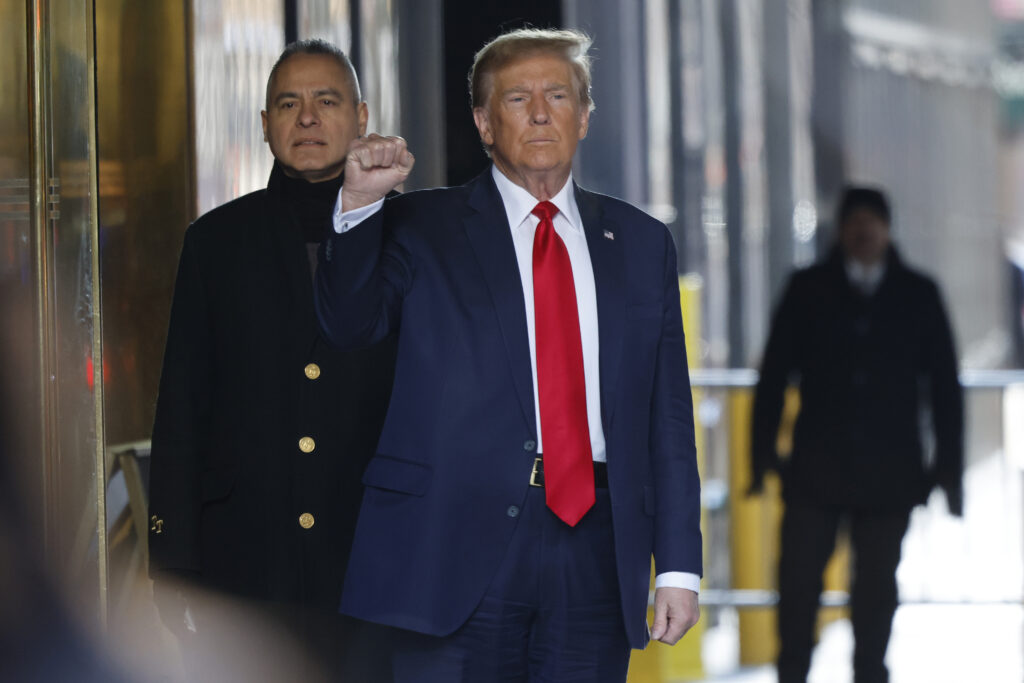
Mr. Steinglass wanted to ask jurors if they thought the 2020 election was stolen. The answer, he said, could show if the juror was able to recognize facts. Mr. Blanche fiercely disagreed. That kind of question, he argued, was “completely inappropriate.” He added, “Over half of the population of this country believes that the election was stolen.”
He also disagreed to accept the question on whether the potential juror felt that Mr. Trump was treated unfairly by the court system, arguing that “80 percent of the country thinks that Mr. Trump is being treated unfairly.”
“There’s no chance that we’re going to find a juror who has no opinion of President Trump – former President Trump,” Mr. Steinglass worried during the hearing.
The judge told both the defense and the prosecution that he will need them to agree on a narrative of the case, which he can present to the jurors.
Toward the end of the hearing, Mr. Blanche repeated his disappointment with the justice system.
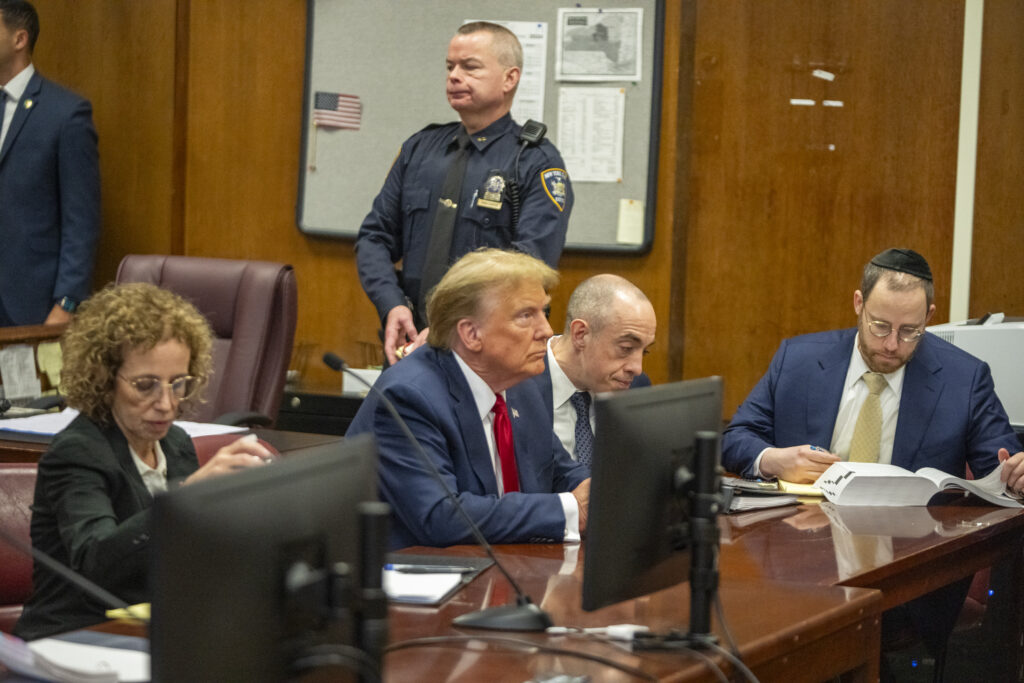
“The fact that President Trump is now going to spend the next two months working on this trial instead of campaigning is something that shouldn’t happen in this country,” he said.
“What’s your legal argument? That is not a legal argument,” Justice Merchan asked in return.
As Mr. Trump left the courtroom, he glanced at the reporters again, winking at Jeffrey Toobin.
“We are pleased that the Court denied the defense’s motion to dismiss. We look forward to presenting our case in court on March 25, 2024,” Mr. Bragg said in a statement after the hearing.

